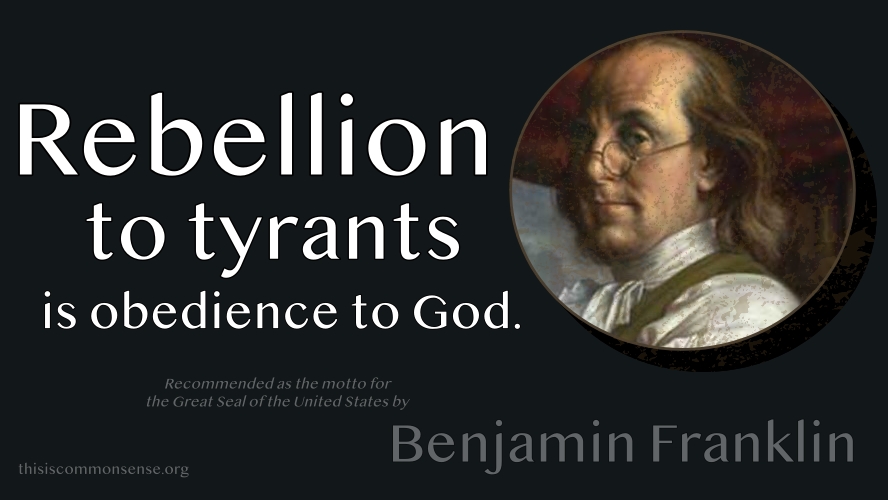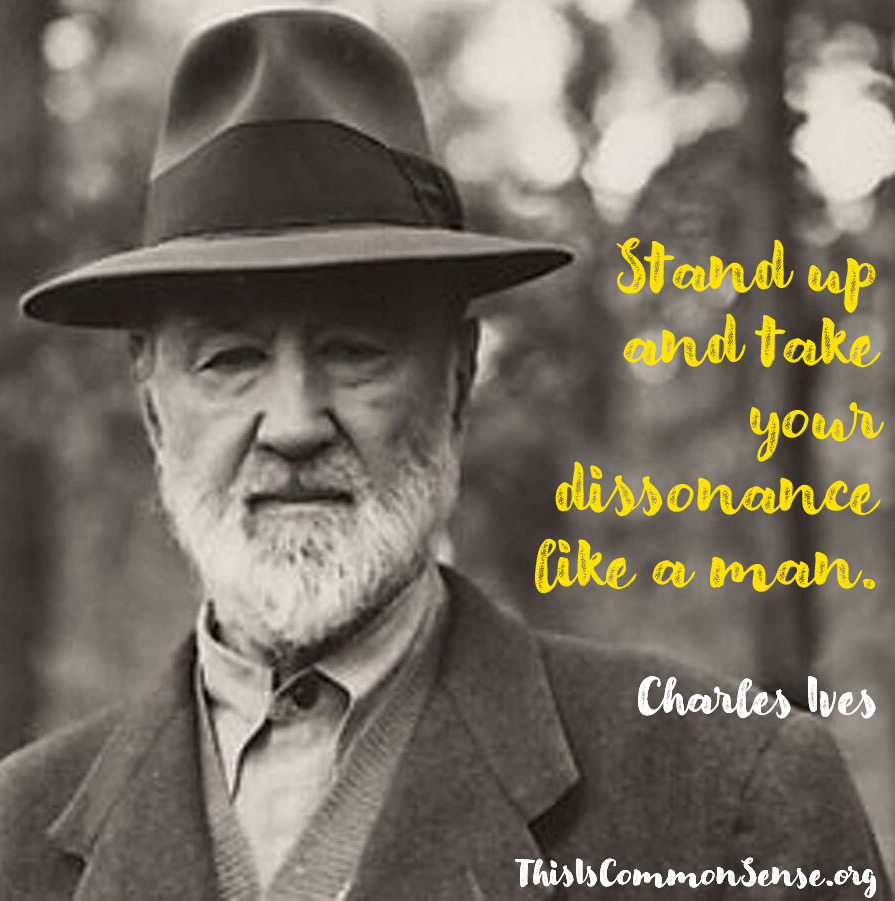Rebellion to tyrants is obedience to God.
Ben Franklin’s recommended motto for the Great Seal of the United States, August 1776.
Categories
Benjamin Franklin


Rebellion to tyrants is obedience to God.
Ben Franklin’s recommended motto for the Great Seal of the United States, August 1776.

All hereditary Government is in its nature tyranny. An heritable crown, or an heritable throne, or by what other fanciful name such things may be called, have no other significant explanation than that mankind are heritable property. To inherit a Government, is to inherit the people, as if they were flocks and herds.
Joseph Priestley, The Rights of Man (1791).

Sell not virtue to purchase wealth, nor Liberty to purchase power.
Poor Richard’s Almanack, 1738.

Le temps est un grand maître, dit-on;
le malheur est qu’il soit un maître inhumain qui tue ses élèves.
Time is a great teacher, but unfortunately it kills all its pupils.
From a letter by Hector Berlioz, November 1856, published in Pierre Citron (ed.) Correspondance générale (Paris: Flammarion, 1989) vol. 5, p. 390.

Stand up and take your dissonance like a man.
American composer and insurance innovator Charles Ives, as quoted in “Charles Ives’ Rambunctious ‘Fourth Of July,’ NPR Music (July 3, 2008).

Too many pieces of music finish too long after the end.